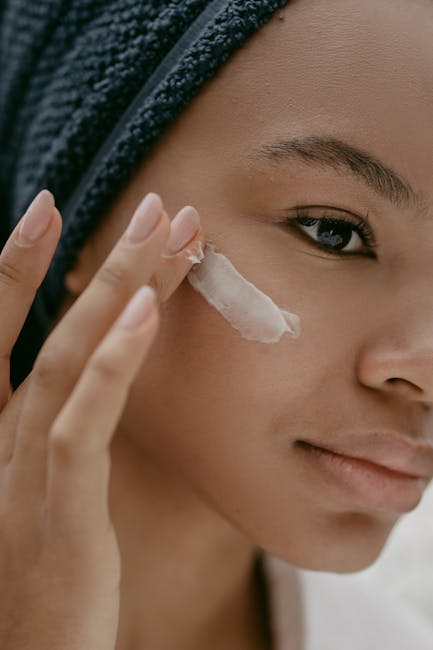
The quest for youthful, vibrant skin is as old as time itself. In a world saturated with anti-aging solutions, one contender often sparks particular curiosity: topical estrogen creams. Touted by some as a miracle cure for age-related skin shifts, these creams promise to restore elasticity, hydration, and that coveted youthful glow. But what’s the real story? Are estrogen creams truly the answer, or just another fleeting trend? We asked leading dermatologists to cut through the hype and reveal the unvarnished truth.
The Silent Role of Estrogen in Skin Health
Estrogen, often celebrated for its profound role in women’s overall health, is also a silent hero for skin vitality. This crucial hormone is instrumental in maintaining skin thickness, boosting collagen production, enhancing elasticity, and optimizing hydration levels. It helps keep your skin plump, resilient, and smooth.
As we age, particularly during perimenopause and menopause, estrogen levels naturally decline. This significant dip often manifests visibly as thinner, drier, less elastic skin, an increase in fine lines and wrinkles, and a duller, more fragile complexion. This undeniable link has led many to wonder if replenishing estrogen topically could reverse these unwelcome changes.
Topical Estrogen Creams: The Promise and The Hype
Topical estrogen creams are designed to deliver estrogen directly to the skin, bypassing systemic absorption to some extent (though not entirely). The theory is that by restoring these diminishing hormone levels in the skin, we can directly counteract the visible signs of aging – plumping up the skin, improving its overall texture, and enhancing its resilience and hydration.
Many over-the-counter products claim to contain ‘estrogen-like’ compounds or phytoestrogens (plant-derived compounds that mimic estrogen). Prescription-strength estrogen creams, however, contain actual estrogen hormones.
Dermatologists Reveal The Truth: A Nuanced Perspective
So, are they the magic bullet? According to dermatologists, the answer is complex and far from a simple ‘yes’ or ‘no.’
"While estrogen undeniably plays a significant role in skin health, the efficacy and safety of topical estrogen creams for general anti-aging are highly nuanced," explains Dr. Anya Sharma, a board-certified dermatologist. "Their use needs to be carefully considered, especially given potential systemic effects."
Where They Shine (Specific Cases):
-
Severe Atrophy and Dryness: For women experiencing significant skin atrophy, severe dryness, or fragility due to menopausal estrogen decline, particularly in sensitive areas like the vulva, topical estrogen can be incredibly beneficial. It can dramatically improve tissue integrity, reduce dryness, alleviate discomfort, and enhance overall tissue health in these localized areas. In these cases, they are often prescribed by a gynecologist or dermatologist.
-
Mild Facial Improvements: Some studies have shown that prescription-strength topical estrogen can lead to mild improvements in facial skin hydration, elasticity, and even a slight increase in collagen over time. However, these effects are often less dramatic than those achieved with other established anti-aging treatments.
The Risks and Concerns:
-
Systemic Absorption: "The primary concern with any topical hormone, even at lower doses, is systemic absorption," warns Dr. Sharma. "Any hormone applied to the skin can enter the bloodstream, potentially leading to systemic effects. While absorption rates vary, there’s always a risk, especially for individuals with a history of hormone-sensitive conditions like certain cancers (breast, uterine), blood clots, or cardiovascular issues." This risk makes self-prescribing highly inadvisable.
-
Over-the-Counter vs. Prescription: Many OTC creams contain phytoestrogens, which have weaker and less predictable effects than prescription estrogen. Their efficacy for significant anti-aging benefits is often limited. True estrogen creams are typically prescription-only.
-
Lack of Universal Efficacy: For general cosmetic anti-aging, the benefits of topical estrogen often do not outweigh the potential risks for many individuals, especially when safer, more widely proven alternatives exist.
Better, Safer Alternatives for General Anti-Aging
For most individuals looking to combat the general signs of aging, dermatologists overwhelmingly stress the importance of well-established, evidence-based skincare ingredients and practices that do not carry the systemic risks of hormones:
-
Retinoids (Retinol, Tretinoin): The gold standard for stimulating collagen production, accelerating cellular turnover, and improving skin texture and tone. Tretinoin (prescription) offers the most profound benefits.
-
Vitamin C: A powerful antioxidant that protects against free radical damage, brightens the complexion, and boosts collagen synthesis.
-
Hyaluronic Acid: An exceptional humectant that draws and locks moisture into the skin, providing immediate plumping and hydration.
-
Sun Protection (SPF): The single most crucial step in preventing premature aging. Daily use of broad-spectrum SPF 30+ is non-negotiable.
-
Peptides and Growth Factors: Ingredients that support skin repair, collagen synthesis, and overall rejuvenation.
-
Healthy Lifestyle: A balanced diet, adequate hydration, sufficient sleep, and stress management all contribute significantly to skin health from within.
The Verdict: Consult a Professional
So, are estrogen creams the universal answer to age-related skin shifts? The dermatological consensus is nuanced. While they hold significant promise and are invaluable for specific, medically indicated conditions, especially in localized areas like vulvar atrophy, they are generally not considered the primary solution or a magic bullet for widespread cosmetic anti-aging.
For most people, the potential risks of systemic absorption outweigh the benefits compared to safer, more widely proven alternatives. Always consult with a board-certified dermatologist or your healthcare provider before considering any hormone-based topical treatments, especially if you have underlying health conditions. They can assess your individual needs, discuss potential risks, and guide you towards the safest and most effective regimen for your unique skin journey.
